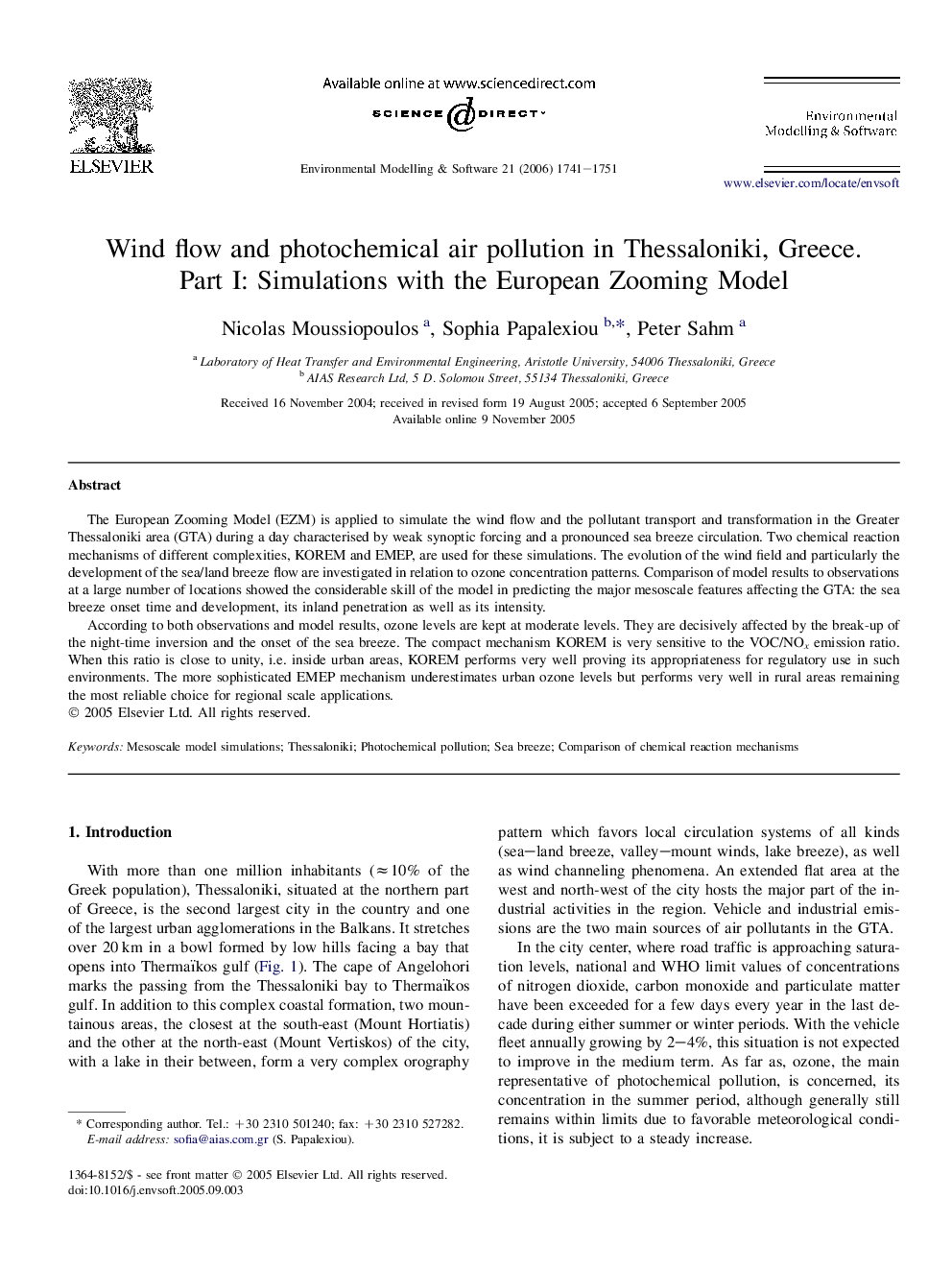| کد مقاله | کد نشریه | سال انتشار | مقاله انگلیسی | نسخه تمام متن |
|---|---|---|---|---|
| 570469 | 876815 | 2006 | 11 صفحه PDF | دانلود رایگان |

The European Zooming Model (EZM) is applied to simulate the wind flow and the pollutant transport and transformation in the Greater Thessaloniki area (GTA) during a day characterised by weak synoptic forcing and a pronounced sea breeze circulation. Two chemical reaction mechanisms of different complexities, KOREM and EMEP, are used for these simulations. The evolution of the wind field and particularly the development of the sea/land breeze flow are investigated in relation to ozone concentration patterns. Comparison of model results to observations at a large number of locations showed the considerable skill of the model in predicting the major mesoscale features affecting the GTA: the sea breeze onset time and development, its inland penetration as well as its intensity.According to both observations and model results, ozone levels are kept at moderate levels. They are decisively affected by the break-up of the night-time inversion and the onset of the sea breeze. The compact mechanism KOREM is very sensitive to the VOC/NOx emission ratio. When this ratio is close to unity, i.e. inside urban areas, KOREM performs very well proving its appropriateness for regulatory use in such environments. The more sophisticated EMEP mechanism underestimates urban ozone levels but performs very well in rural areas remaining the most reliable choice for regional scale applications.
Journal: Environmental Modelling & Software - Volume 21, Issue 12, December 2006, Pages 1741–1751